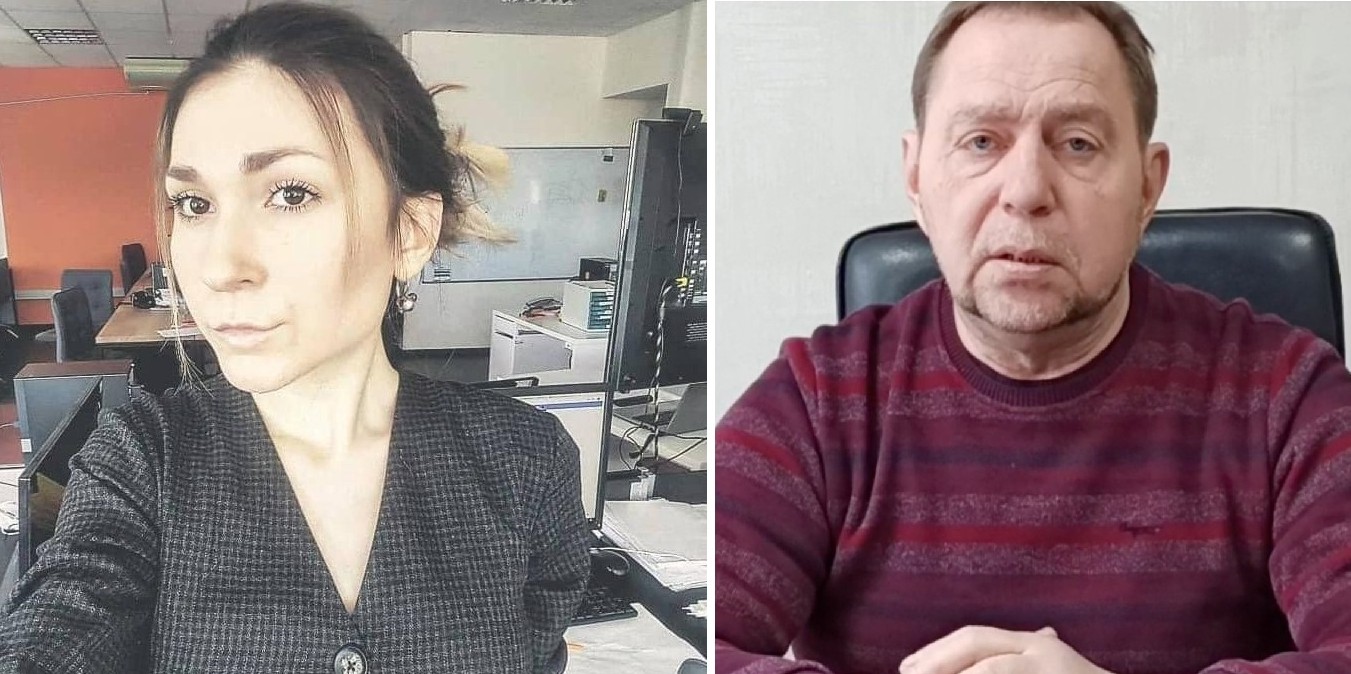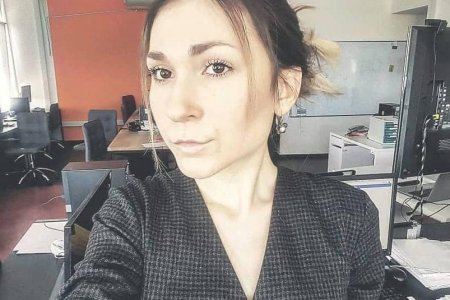
In their latest investigation into the torture and death in Russian captivity of abducted Ukrainian journalist Victoria Roshchyna, Slidstvo.info confirmed that the 27-year-old journalist, who was dangerously emaciated and had been subjected to torture, was sent on the gruelling journey from Tagenrog to a SIZO [remand prison] in Kizel just eight days before she died. It is not known whether she was tortured upon arrival at the SIZO in Kizel, but Danylo Murashkin, a former prisoner of war who was transferred at the same time, says that, although very thin, she was able to walk. Danylo has also described the horrific beating, to loss of consciousness, which he was subjected to after arriving at the Kizel SIZO, and confirmed that Dniprorudne Mayor Yevhen Matvieiev died two days after the torture session that Russia calls its ‘prison admission’ [«приемка»].
Russia is well aware that its abduction and imprisonment of civilian hostages are in violation of international law and often either denies that a person is in their custody, or gives minimum information, while moving the person around. It is generally only from the testimony of other hostages or, more often, prisoners of war, like Danylo, freed in prison exchanges. that we learn any details.
Yevhen Matvyeyev, Mayor of Dniprorudne (Zaporizhzhia oblast) had disappeared after he was abducted by the Russian invaders on 13 March 2022, two weeks after he led unarmed local residents of Dniprorudne in refusing to allow Russian tanks into the city.
His body was returned in an exchange in December 2024, with Ivan Fedorov, Mayor of Melitopol and himself a former victim of such abductions, reporting only that Matvyeyev had been tortured to death in Russian captivity.
Thanks to the testimony of former prisoner of war given to Slidstvo.info, we now know that Matvyeyev had been taken to SIZO No. 3 [officially a remand prison, though used as a prison for Ukrainian POWs and civilian hostages) in Kizel, Perm region. It is not clear when this was. Fedorov said in an interview after Matvyeyev’s body was returned, that, after the initial silence following his abduction, they had ascertained that he had been held in many different places of imprisonment.
Russia does appear to be moving civilian hostages from prison to prison to cover its tracks and ensure that they cannot be located. All such transfers, typically from prison to prison, are especially gruelling and dangerous. Even in the case of political prisoners whom Russia is not hiding, they have no contact with lawyer or family during the period of transfer.
Another element of danger is tragically demonstrated by the death of Yevhen Matvyeyev. Russian prison administrations stage something referred to as ;priyomka’, or ‘admission’, which is a cynical title for a procedure where those newly arrived at the prison colony or SIZO are subjected to beatings or other forms of torture.
Matvyeyev was 63 and died of his injuries two days after the savage beating he received at the SIZO in Kizel.
Victoria Roshchyna
It is now known that the young journalist also died at the SIZO in Kizel on 19 September 2024, eight days after she was brought to the prison from SIZO No. 2 at Tagenrog. She was only 27 and had not been in bad health before being abducted by the Russians from occupied Zaporizhzhia oblast in August 2023,
It was previously thought that Victoria (Vika) had died (or had been killed) at SIZO No. 2 in Tagenrog, a prison notorious for the torture to which Ukrainian prisoners were subjected.
Danylo had seen and managed to exchange a few words with Vika at Taganrog and then saw her again during the three days that it took to transfer them, over 2,500 kilometres, from the Taganrog SIZO to Kizel.
Danylo says that Vika looked terrible and was even thinner than he remembered her. Even if, as he recalls, she was still able to walk by herself, the young woman had been subjected to torture and was seriously emaciated,. Any transfer at that stage, almost certainly without any medical care, amounted to further torture. Vika was, seemingly, admitted to an isolation ward at the Kizel SIZO. The formal death certificate gives the Kizel SIZO in Perm region as the place of death and is dated 19 September 2024.
It was only on 10 October 2024 that Russia admitted that Victoria Roshchyna was dead. No information was provided as to how she had died, and where. Ukraine’s Prosecutor General immediately initiated a criminal investigation under Article 438 of Ukraine’s Criminal Code (war crimes). It was a full six months before Russia handed over her body, with the delay doubtless deliberate. Taras Semkiv from the Prosecutor General’s Department Investigating Crimes linked with the War [the War Department] told Slidstvo that Vika’s body had been returned in a state making it impossible to carry out a proper postmortem and establish the direct cause of death.
There have since been reports that parts of her body had been removed. Whether or not this is true, Yury Bielousov, Head of the War Department did report, after the DNA analysis confirmed identity, that numerous marks from torture and ill-treatment had been found on her body. These included bruises and bleeding on various parts of her body, as well as broken ribs.
In March 2025, Slidstvo.info, together with journalists from Suspilne; Graty and the international NGO Reporters without Borders, presented the results of their independent investigation into how Victoria had ended up in Russian captivity and about Russia’s treatment of her, especially in the SIZO-2 remand prison in Taganrog. The journalists had spoken with people whom Victoria had been in contact with just prior to her abduction and were also given access to part of the testimony of Victoria’s former cellmate, given after the latter was freed. She described the torture to which Victoria had been subjected and her state of extreme emaciation. She had had numerous scars on her body from her treatment in the Russian torture prisons, including one caused by a knife. The former cellmate also confirmed that Victoria had been subjected to torture through electric currents with wires attached to the most sensitive parts of the body. Some of the wounds were very recent, and she clearly needed treatment for them, yet all her requests then, and on other occasions, were ignored (see: Ukrainian journalist Victoria Roshchyna died after savage torture and extreme emaciation in Russian captivity)


